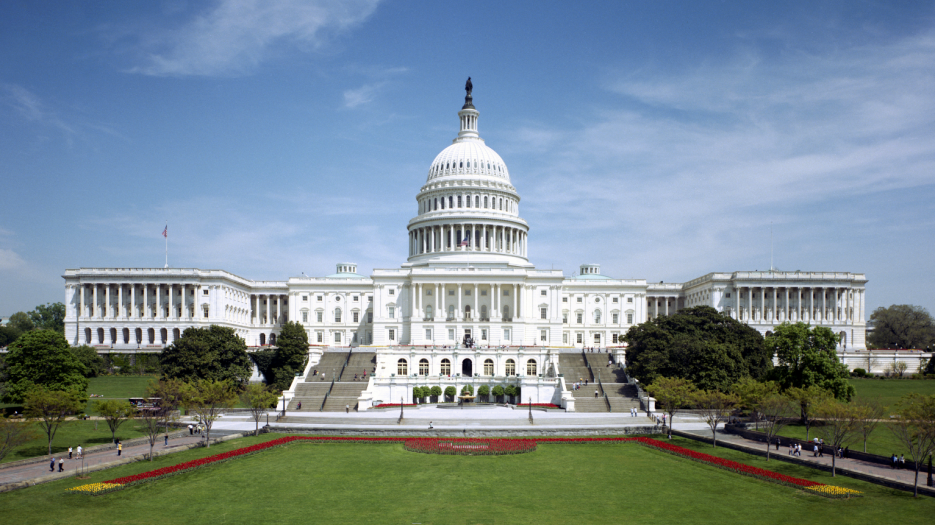2024 U.S. Senate Political Questionnaire
Published
10/7/2024
The Utah Farm Bureau reached out to candidates for the 2024 General Election for U.S. Senate, Rep. John Curtis of the Republican Party, and Caroline Gleich of the Democratic Party. Utah Farm Bureau does not endorse candidates, and simply provides these answers to questions to help voters when making election decisions. You can also find answers to questions asked for the four U.S. House races.
 Rep. John Curtis (Republican) on the left, and Caroline Gleich (Democrat), on the right.
Rep. John Curtis (Republican) on the left, and Caroline Gleich (Democrat), on the right.
TAX POLICY
Agriculture operates in a world of uncertainty. From unpredictable national situations to commodity and product market instabilities to fluctuating input prices, from natural disasters and damaging weather events to insect or disease outbreaks, running a farm or ranch business is challenging under the best of circumstances. Farmers and ranchers need a tax code that provides certainty and recognizes their unique financial challenges.
In Congress, what provisions would you support to help farmers and ranchers remain on the land and producing food, fuel and fiber?
John Curtis: Since coming to Congress, I have thoroughly enjoyed my relationship with the Utah Farm Bureau. I have met so many of you during your DC fly-ins and traveling around Utah, and I look forward to continuing that important relationship in the Senate. I understand that robust domestic production of food is critical to our national security and wellbeing. I will continue to support policies that support American farmers and ranchers, while also holding foreign adversaries accountable who seek to take advantage of our system.
I am proud that one of my first votes in Congress was in support of the Trump tax cuts. While this bill included many provisions, one of the most important was increasing the income threshold for the death tax. I have supported legislation to eliminate the death tax entirely, which disproportionately hurts family agricultural operations. I have also supported legislation to prevent the Chinese Communist Party from buying up U.S. farmland.
I also voted for the Farm Bill in the House and will continue to be at the table to ensure Utah’s interests are represented as the next version is drafted and considered. I regret some Republicans don’t understand the importance of these programs to rural Utah and I see it as a piece of critical legislation.
Caroline Gleich: I would advocate for expanding tax credits and incentives for farmers and ranchers who adopt sustainable, regenerative agricultural practices and modern water conservation. These practices not only improve long-term soil health but also enhance resilience to climate change, droughts, and other natural disasters. We can reduce tax liabilities for those who invest in conservation efforts and renewable energy projects, such as solar or wind, on their lands.
Protecting the generational transfer of farms is essential for keeping agricultural operations in families. I would push for reforms to the estate tax, ensuring that family farms can be passed down to future generations without the burden of significant tax penalties. Exempting more agricultural land from estate taxes or allowing farmers to defer taxes when transferring land to family members would help preserve Utah's farming legacy. With the increasing frequency of droughts, wildfires, and other extreme weather events in Utah, I would work to streamline and expand tax relief provisions for farmers affected by natural disasters. This could include provisions for income averaging to smooth out the tax burden across good and bad years, as well as increased disaster loss deductions.
Taking care of our land, and those that work it would be a priority if I am elected to the Senate.
REGULATORY REFORM

All Americans have an interest in a regulatory process that is transparent and fact-based, respects the will of Congress, and observes the separation of powers in the Constitution. Federal regulations have a direct impact on farmers and ranchers, and over the years, the breadth and extent of that regulatory landscape have changed.
What actions would you take to ensure that the federal government’s regulatory burden on businesses such as farming and ranching is consistent with congressional intent? Would you support regulatory reform to ensure that federal regulations meet a cost/benefit test and make the process of writing new regulations more transparent, and if so, how?
Caroline Gleich: I would support regulatory reform that balances the need for effective oversight with the practical realities faced by farmers and ranchers.
Farmers and ranchers often operate in diverse and unpredictable environments, and regulations must allow for flexibility to adapt to local conditions. I would support reforms that encourage regulatory agencies to consider local and regional needs when crafting regulations. This could include allowing for exemptions or adjustments in cases where federal regulations impose disproportionate burdens on smaller or more vulnerable agricultural operations.
John Curtis: We absolutely need more accountability for the regulations put out by federal agencies. This is especially true for the Environmental Protection Agency (EPA) which has overstepped their legal authority in an attack on rural America. This includes their disastrous WOTUS rule, limiting the use of certain pesticides without robust scientific justification, and more. I will continue to perform oversight of these agencies, especially when it impacts Utah’s industries.
A major step could be the results of the Supreme Court’s case on Chevron deference. Currently, courts generally defer to an agency’s interpretation of the law. By overturning Chevron, it would put the ball back in Congress’ court and give us much more leverage to hold agencies accountable. Once this case is decided I look forward to seeing what opportunities exist to further push back on the regulations coming out of the EPA and other agencies that negatively impact Utah’s farmers and ranchers.
ENDANGERED SPECIES ACT
Privately owned land provides habitat for the majority of our nation’s endangered and threatened species. As a result, landowners often face harsh regulatory restrictions on their ability to use the land or, worse, lawsuits or enforcement actions. Meanwhile, few species have actually been recovered under the law.
Is it time to think about incentive-based programs that create a positive role for landowners in species recovery? What recommendations do you have for reforming the Endangered Species Act, and what role would you assign America’s landowners?
John Curtis: It is clear the Endangered Species Act (ESA) is broken and I have supported numerous pieces of legislation to reform it. We need to stop the ESA’s weaponization, where under the current situation the law effectively allows litigious groups to use the ESA to justify shutting down production. I also believe we need to push conservation efforts down to the state and local level. This will help species conservation by allowing flexibility and innovation that is rarely considered at the federal level.
Additionally, we must ensure private landowners have the complete right to access and use their property as they see fit. Farmers and ranchers have been the stewards of these lands for generations and understand how to use the land responsibly and sustainably. We should be looking to them for solutions, not allowing Washington bureaucrats to tell them how to do their jobs.
Caroline Gleich: The ultimate goal of the ESA should be species recovery, not just preventing extinction. I would push for reforms that shift the focus of the law toward more active recovery efforts, with clear benchmarks for progress. Landowners should be empowered to play a central role in achieving these benchmarks through voluntary conservation efforts, habitat restoration, and sustainable land management practices. Federal agencies should provide the resources and support needed to help landowners succeed in these efforts.
Reforming the ESA to include more incentives and voluntary programs would help strike a balance between protecting property rights and promoting the conservation of endangered species. Landowners should not be seen as opponents of environmental protection, but as essential partners who can make meaningful contributions to species recovery while continuing to use their land productively.
AGRICULTURAL LABOR
Farmers and ranchers need a reliable, skilled workforce. Farm work is challenging, often seasonal and transitory, and with fewer and fewer Americans growing up on the farm, it is becoming increasingly difficult to find American workers attracted to these kinds of jobs. Farm labor can’t all be replaced by machines, either.
What role can Congress play in addressing the critical labor shortages that many farmers and ranchers face each year? How optimistic are you on finding workable (and passable) solutions to the labor crisis?
Caroline Gleich: Immigration reform can solve a lot of the labor issues we are currently facing. We need to create a pathway for citizenship for those who are willing to work on a farm for a number of years and immigrate legally.
Additionally, working with stakeholders to understand their specific challenges and then trying to meet their specific labor needs where possible would be key in how I would vote, and spend my time advocating. I would like to create a reliable workforce that benefits farmers and ranchers as well as the workers.
John Curtis: In Congress I have a long track record of voting for legislation that would increase flexibility for Utah’s agricultural operations to access seasonal foreign labor. This is hard work and we have seen for years the lack of Utahns applying to fill these positions. When there is a shortage of labor I think it is appropriate to allow visas to support these Utah businesses.
In addition to H-2A, I introduced legislation that would create a state sponsored visa pilot program. This bill would grant a certain amount of visas to each state’s governor to issue. In my view, giving those with the best understanding of the on the ground labor needs will result in better policy. I also included a provision that allows Utah to create compacts to allow seasonal agricultural workers to move between states based on the growing seasons. I believe the flexibility of my legislation would have a huge impact on filling the needs of Utah’s agriculture economy.
PUBLIC LANDS
The federal government often changes policies regarding the management of public lands that impact agriculture and the multiple-use principle of public lands. More than 2/3 of Utah is public land in one form or another.
What will you do in your office to ensure that public lands can be used for the multiple uses they are designed for, including agriculture?
John Curtis: I am proud to spearhead the effort to repeal BLM’s disastrous Conservation and Landscape Health rule which effectively ends multiple use of our public lands. This rule is a direct attack on rural Utah by allowing rich environmental groups to lock up public lands throughout the state. I am proud that my legislation to repeal it passed the House with bipartisan support.
I take great pride in learning about Utah’s local issues and working to solve those problems. In the Senate, I will continue to push back against federal overreach and work with rural communities to be the resources they need to succeed, be it infrastructure, permitting, or other issues.
Caroline Gleich: Utah’s public lands are one of our greatest assets, and we have a responsibility to protect and preserve them for our kids, grandkids, and generations to come. I support keeping public lands in public hands, not selling them off to the highest bidder, ensuring they remain useful and preserved for generations to come.
TRADE
.jpg)
After decades of ag exports being a mainstay in our national balance of trade, the United States has been a net importer in agricultural trade since 2021.
- Does this raise national security issues?
- What can be done in your role to help this?
Caroline Gleich: Absolutely it raises national security issues. I can be an advocate for farmers, and take votes that allow the United States to become self-sufficient.
John Curtis: This is absolutely a problem. We should immediately ban our adversaries, such as China, from buying U.S. farmland which currently raises the cost of land for U.S. businesses. I have been a strong critic of efforts by foreign countries to flood markets to the detriment of American farmers, and we should look to our tariff policies to hold them accountable when appropriate.
We need robust domestic programs to ensure agriculture businesses can continue to operate in the face of uncertain market conditions like we see in the Farm Bill. As the world becomes a more dangerous place due to aggression by foreign adversaries it is more important than ever to ensure we have a sustainable agriculture domestic supply chain.
GENERAL
Outside of agriculture, what are some of your main issues that you hope to address if elected?
John Curtis: I wrote an op-ed about why I am running for the U.S. Senate that can be read here: https://www.standard.net/opinion/guest-commentary/2024/apr/24/guest-opinion-a-vision-for-utah-why-im-running-for-the-us-senate/
Caroline Gleich: I deeply care about our families, our future, and our freedom. I want to ensure we expand access to healthcare, including preventative care and mental healthcare and ensure no one has to worry about losing their home if they have a healthcare crisis. I support tax incentives to address the rising price of housing, including first time home buyer credits and tax incentives for accessory dwelling units and other structures that add more livable space to existing property. We need to ensure we support our rural communities so they have thriving main streets and so folks can stay in the communities they grew up in.
I will fiercely defend our reproductive freedom and expand access to reproductive healthcare so rural communities don’t need to suffer from higher-than-average maternal mortality rates.
We also need to do more to ensure that every Utahn and American can effectively use government as a problem-solving tool by ending partisan gerrymandering and reforming campaign finance, so no billionaire or corporation can buy an election or have undue influence on our elected officials. And as Utah is already seeing the devastating impacts of the climate crisis, we must accelerate our transition to clean renewable energy while supporting our legacy energy producing communities, ensuring they have good-paying, Union jobs. The clean energy economy must be led by American manufacturing.

